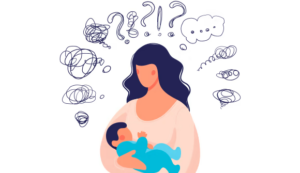The data accumulated from the Indian populace shows that bipolar disorder is common in India with over ten million cases in a year. But what exactly is bipolar disorder and what is the scope of Bipolar Disorder Treatment in India will be discussed further.
Mental health disorders are a growing menace. Recent researches have concluded that mental health issues are increasingly outnumbering cancer and heart disease as a leading cause of death worldwide. It is thus not only appropriate but also necessary to have
adequate information about this domain.
Bipolar disorder involves alternative moods that range from manic episodes to depressive episodes. The following is a more comprehensive list of symptoms associated with the disease:
Manic episodes involve—
- High intensity positive emotions are experienced such as excitement, euphoria, and joy
- Restlessness
- Need for lesser amount of sleep
- Loss of touch with reality
- Talking quickly and fleeting from one train of thought to
- Reckless behaviour that can be harmful
- Loss of impulse control
- Increased levels of energy
- Attention difficulties
- Extreme irritability
Depressive episodes involve—
- Difficulty finding pleasure in enjoyable activities
- Low mood most of the time
- Suicidal ideation
- Self-harm in extreme cases
- Disconnectedness from friends and family
- Psychomotor retardation
- Severe changes in sleep patterns including inability to sleep or sleeping too much
- Impaired decision making and concentration
- Feelings of hopelessness and worthlessness
- Feeling fatigued most of the time
- Having less energy and motivation to do things than usual
Every individual goes through mood swings in life. However, the mood swings endured
during bipolar disorder are severe. Medical professionals point out that the key feature of bipolar disorder is alternative high and low moods sustaining for a long period. These alternations can be in a rapid succession for some people, while for others the occurrences may involve gaps between them. Moreover, bipolar disorder has three main types: bipolar 1, bipolar 2, and cyclothymia, with varying degrees and duration of manic and depressive episodes.
When to see a doctor?
According to the Diagnostic and Statistical Manual of Mental Disorders, a person must have had at least one manic or depressive episodes lasting for a week to be diagnosed with bipolar disorder. As the symptoms mentioned above go on to show, bipolar disorder can significantly disrupt a person’s lifestyle. If the described symptoms are evident and are causing distress to the individual, professional help should be sought at the earliest to get the best care and support.
What causes Bipolar Disorder?
Genetics is considered to be one of the main reasons for this disorder as it is highly heritable by members of the same family. However, present studies have concluded that no single gene to be associated with it. Environmental factors such as adverse childhood experiences and traumatic events can also put a person at risk for developing the disorder. Mid-twenties is a time period when the disorder generally emerges.
Individuals with bipolar disorder are also at a high risk for other disorders including Attention Deficit Hyperactivity Disorder (ADHD), anxiety disorders, and substance use disorder.
What Bipolar Disorder Treatment in India looks like?
On an initial visit to a medical professional, one can expect diagnostic tests and interviews to assess the presence and severity of the disorder. They can involve questionnaires and one-on-one interviews with the professional.
The treatment plan involves either psychotherapy or medication and sometimes both. Cognitive Behavioural Therapy (CBT) is the common choice of psychotherapy. It can be coupled with Family-Focused Therapy as well as Group Therapy.
Medications involve mood-stabilizers, antidepressants, antipsychotics, and anxiolytics.
Treatment plans for bipolar disorder are frequently long-term. If left in the midst without the advise of a professional, it can lead to a relapse.
A challenge with bipolar disorder treatment is that manic episodes can bring some advantages in the individual’s life such as being able to do tasks more proactively and increased socialization and talkativeness which can make it hard for the individual to
identify how this may affect him/her in the future since manic episodes last only for a while and are accompanied with many other symptoms like irritability and concentration
difficulties and therefore, seek appropriate treatment.
This issue can be effectively dealt with by providing psychoeducation to not just the affected but also the general masses to increase awareness.
Conclusion
Bipolar disorder treatment in India is available and accessible. It can be a debilitating condition to live with and can have significant negative impact on an individual’s life. It is for this reason that reaching out for help is important although it may seem scary at first. The good news is that bipolar disorder can be treated and managed successfully.
Intervention at the earliest stages can make progress even better.
Why CoachForMind?
- Experienced Psychologists: We are a team of licensed RCI-registered clinical Our team has the best practices involved in Bipolar Disorder treatment in India.
- Personalized Approach: We are dedicated to treating our clients with the best suited way, carefully curated as per the needs of the client adhering to one-on-one, client-centred
- Scientific Techniques: Our treatment plans and therapeutic methods are based on highly researched, scientific findings such as CBT and behaviour These therapies are used in rewiring the brain into shifting from inattentive and hyperactive behaviours into healthy ways of coping from the issue and developing mindful habits.
- Ǫuality service: We at CoachForMind ensure quality services in our treatment regime and therapeutic Our clients hold most value to us, so we ground our techniques in empathy while maintaining professionalism.
For more information, please visit our website or contact us directly at coachformind@gmail.com




